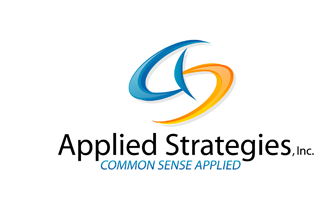To avoid confusion, Non-budgeted refers to expenses not included in a budget, versus Unbudgeted, which refers to items or expenses not included in the original budget but can still be accommodated within the budget without exceeding the total amount allocated.
The non-budgeted expense we are speaking of is loyalty. This loyalty is both between the firm and its lawyer and the client and the firm.
Before all the business development “experts” get riled up with me over placing lawyer loyalty ahead of client loyalty, it is common sense that if your firm does not have the lawyers, it can not provide exceptional client service!
Firm and Lawyer Loyalty
This loyalty between the lawyers and your firm refers to the professional relationship between the lawyer and the law firm they work for. Lawyer loyalty is not complicated and should encompass the following:
- A willingness to work diligently,
- Advocate zealously for the firm’s clients,
- To adhere to ethical standards,
- Adhere to the firm’s policies and procedures,
- Actively support the firm’s reputation and success,
- Demonstrated willingness to contribute to the firm’s growth and development and
- Long-term commitment to the firm.
The firm must create an engagement between the firm and the lawyer that inspires this loyalty. Creating loyalty engagement is an ongoing process that requires a genuine investment by the firm, both financially and partners’ time.
There are many actions that firms can take to create a sense of loyalty, including:- Foster a positive work environment: Promote a supportive and inclusive culture where lawyers feel valued and appreciated. Encourage open communication, collaboration, and a sense of belonging.
- Provide career development opportunities: Offer ongoing training programs, seminars, and mentorship opportunities to help lawyers enhance their skills and advance their careers. Create clear pathways for growth within the firm, including partnership prospects.
- Recognize and reward achievements: Acknowledge the accomplishments of lawyers through regular feedback, performance reviews, and rewards, including bonuses or public recognition for exceptional work.
- Encourage work-life balance: Promote a healthy work-life balance by offering flexible work arrangements, reasonable work hours, and policies that support personal well-being. Lawyers will feel valued and motivated while reducing burnout.
- Offer fair compensation and benefits (to both the lawyer and the firm): Provide salaries, bonuses, and benefits packages that are within the firm’s means to attract and retain top talent. This demonstrates that the firm recognizes and rewards their contributions.
- Foster a strong team culture: Encourage collaboration, teamwork, and a sense of unity among lawyers. Foster a supportive and respectful working environment where lawyers can rely on each other and share knowledge freely.
- Support professional development: Encourage lawyers to participate in conferences, speaking engagements, and networking events. Supporting their professional growth benefits them and strengthens the firm’s reputation and expertise.
- Demonstrate trust and autonomy: Empower lawyers by giving them autonomy over their work and trusting them to make critical decisions. In so doing, foster a sense of ownership and loyalty to the firm.
Firm and Client Loyalty
Client loyalty is the other loyalty often short shrifted by not being a specific budget line item.
Loyalty between a client and your law firm is a two-way, unwavering commitment from both parties. In this context, loyalty implies that the client consistently works with your law firm for legal matters. Your firm provides dedicated and quality services to the client, ensuring their best interests are represented. Trust is the underlying platform that this loyalty must be built upon.
Trust from a client’s perspective requires several consistent behaviours (and not just when convenient), including:
- Excellent Client Service: Providing exceptional client service is crucial. This involves being attentive, responsive, and proactive in addressing client needs. Firms can prioritize clear communication, keeping clients informed, and promptly addressing concerns.
- Personal Relationships: Developing personal connections with clients can enhance loyalty. Firms can strive to understand their clients’ goals, concerns, and preferences on a deeper level. This can be achieved through regular check-ins, personalized interactions, and taking a genuine interest in their clients’ lives and businesses.
- Deliverance of High-Quality Work (different from exceptional client service): Delivering consistently high-quality legal services is essential for gaining and retaining client loyalty. Being thorough, diligent, and effective in resolving legal issues or cases demonstrates expertise and builds client trust.
- Transparent and Fair Billing Practices: Firms should strive for transparent and fair billing practices. Clients appreciate a clear breakdown of fees, accurate timekeeping, and proactive communication regarding changes to the scope of work or additional expenses. Transparency builds trust and demonstrates respect for clients’ financial concerns.
- Continual Client Education and Support: Providing ongoing educational resources, workshops, or seminars to help clients stay informed about legal topics relevant to their businesses or personal lives can be beneficial. Firms can also offer support services such as newsletters, online resources, or legal updates to keep clients engaged and strengthen the attorney-client relationship.
Both lawyer and client loyalty is a long-term play, and as Jeffrey Gitomer aptly pointed out,
“You don’t earn loyalty in a day. You earn loyalty day by day.”
2024
While there are a variety of opinions as to how 2024 will turn out financially for law firms, there are two knowns:
- The struggle for talent may have diminished somewhat, but the cost of replacement has not, and
- The financial impact of losing and replacing clients has escalated.
Including in your 2024 budgeting, a financial and time commitment to both lawyer and client loyalty programs will minimize the cost of potential losses from losing both lawyers and clients.
In developing your loyalty programs, you may want to consider the following types of planks:
Client
- Special events and networking opportunities: The law firm may organize specific client appreciation events, educational seminars, or networking gatherings where clients can connect with each other and learn about relevant legal topics.
- Personalized communication: Loyalty program clients may receive personalized newsletters, updates, or legal insights tailored to their interests and needs.
- Exclusive perks: Loyalty program clients may have access to exclusive services, such as priority scheduling, expedited case handling, or reserved consultation times with senior attorneys.
Lawyer
- Professional Development: Customized to a lawyer’s desired career growth and develop an “open” mind to all types of professional development (i.e. courses, conferences, etc.)
- An Inclusive Culture: Facilitate open partner-associate communication on critical firm events. Encourage collaboration, individual successes and respect amongst the lawyers.
- A Balanced Autonomy: With ongoing supervision and mentoring, of course, give lawyers autonomy sooner over the files they are working on and trust them to make decisions.
Any loyalty programs implemented must align with your firm’s culture and strategies.
Who is Stephen Mabey?
Stephen Mabey is a CPA, CA, and Applied Strategies, Inc.'s Managing Director. His credentials include the following:
- Fellow of the College of Law Practice Management (one of 19 Canadians);
- Author of Leading and Managing a Sustainable Law Firm: Tactics and Strategies for a Rapidly Changing Profession, and Key Performance Indicators An Introductory Guide (Amazon);
- Over 25 years in a senior management role with Stewart McKelvey, a 220-lawyer, six-office Atlantic Canadian law firm;
- Over 14 years providing advice and counsel to small to mid-size law firms on a broad range of issues;
- A panelist and facilitator of the Managing Partner Information Exchange ("MPIE") at the annual Managing Partner Forum Leadership Conference held in Atlanta, Georgia, each May;
- Runs a group mailing list that circulates articles, directly and indirectly, impacting law firms.
Stephen has advised law firms on a wide range of law firm issues, including - strategic action planning, leadership, understudy (succession) planning, business development, capitalization of partnerships, partnership agreements, lawyer & staff engagement, marketing, key performance indicators, competitive intelligence, finance, mergers, practice transitioning, compensation arrangements, organizational structures, and partnership arrangements.
Stephen can be reached by email – at smabey@appliedstrategies.ca or by phone at 902.499.3895.


